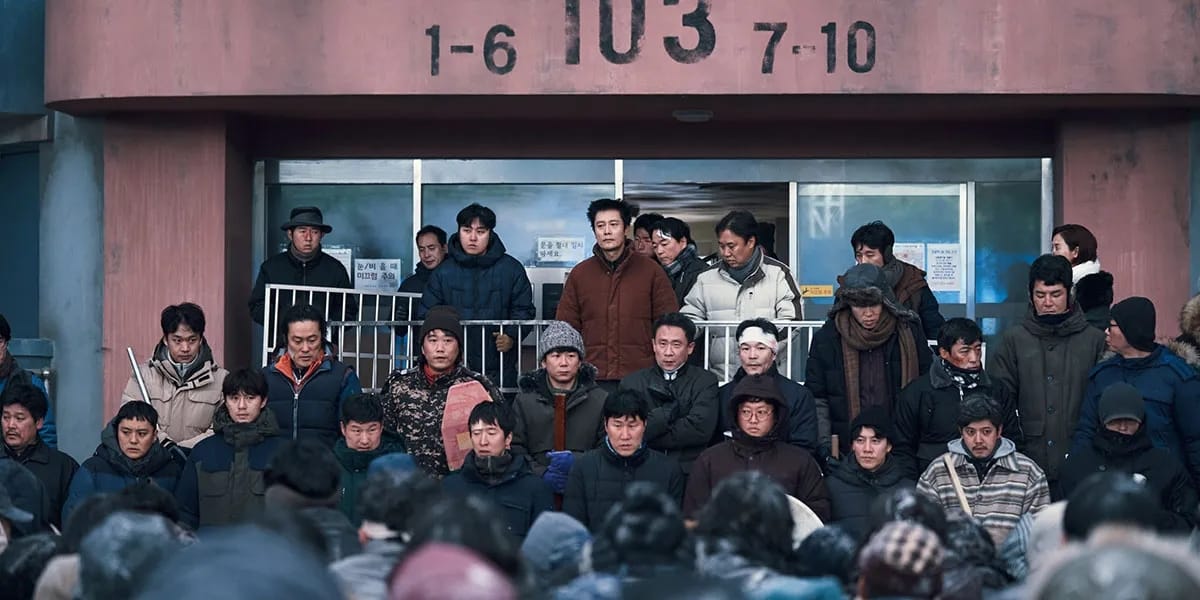Concrete Utopia (2023) dir. Um Tae-hwa
At its most political, Concrete Utopia finds the fascist project essentially anti-life and destined for a systemic collapse.

South Korea’s entry for the Best International Feature Film category at the 96th Academy Awards, Concrete Utopia is a strategic submission from the Korean Film Council, intentionally playing off the themes and ambition of the 2019 Oscar success of Parasite. If Bong Joon-ho’s social-economic viper of a film captured the Best Picture, logic would have it, writer-director Um Tae-hwa’s local disaster and impressive dark-comedy analog for the (global) housing crisis, Concrete Utopia, surely stands a chance in the less prestigious, but no less qualitative, international category. (Generally speaking, I’d argue the best films represented at the Academy are in the international category, not Best Picture.)
And they can’t be blamed for the motivated selection either. The latest star vehicle for Park Seo-Joon, who had a small role as Min-hyuk in Parasite and appeared most recently as Prince Yan in The Marvels, brings the technical prowess characteristic of the late-2010s and early 2020s South Korean blockbusters and recalls the biting criticism of the best films of the (earlier) Korean New Wave. The “utopia” of the title refers to the Hwang Gung Apartments, the last apartment building standing in Seoul– possibly the world, for all we know– after an earthquake. The residents of the building come to think of the surviving outsiders as “cockroaches” and support Yeong-tak (the ever-great Lee Byung-hun), the man with a mysterious past from room 902, in his rise to the role of building delegate. His rise to power is hardly fascistic—he risks his life running into a burning room to extinguish a fire—but his reign as the delegate could only be described in harsher language. He corrupts Park’s Min-seong (from room 602) and selects him to lead the Anti-Crime Force, a group that pirates and thugs from the apocalyptic survivors living in the gray concrete wasteland of Seoul. Under his authority, the building votes to evict all outsiders and to create an exclusive community built not on race, gender, or religion but on the luck of being a resident before the collapse of the city (or possibly even the world). The community is a community simply because they choose to be a community.
Continue reading at the Boston Hassle.